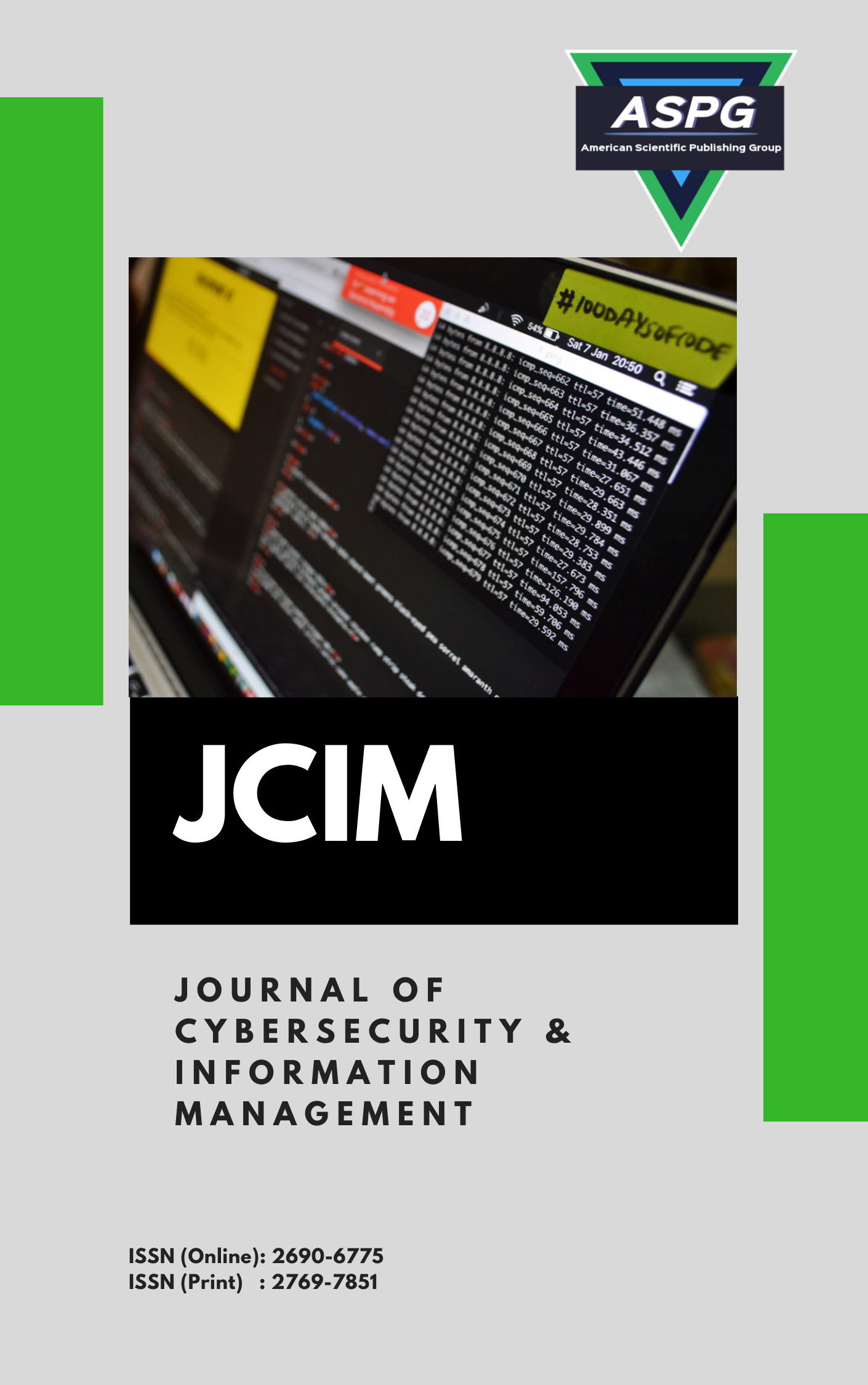

Volume 5 , Issue 1 , PP: 17-27, 2021 | Cite this article as | XML | Html | PDF | Full Length Article
Ahmed N. Al-Masri 1 * , Hamam Mokayed 2
Doi: https://doi.org/10.54216/JCIM.050102
The Internet of Things (IoT) has transformed the way we live and work, with billions of interconnected devices continuously exchanging data. However, the increasing adoption of IoT devices has also made them an attractive target for cybercriminals. Botnets, a network of compromised devices that can be remotely controlled by attackers, are one of the most significant threats to IoT networks. Traditional security solutions are insufficient to combat this threat, as they often rely on signature-based detection methods that can be easily bypassed by attackers. This work proposes an applied deep learning-based approach to secure IoT networks against botnet attacks, based on residual learning architecture that combine convolutional neural network to analyze device behavior and identify abnormal activity patterns that may indicate botnet infection. Our approach is evaluated on real-world BotNet dataset and achieved a high detection rate of botnet activity, outperforming traditional detection methods. The empirical findings show that ours can be used as a tool for developing more advanced and adaptive security solutions to safeguard the IoT galaxy.
Botnet Attacks , IoT , Deep Learning , Secure Networks
[1]. Miller, S., & Busby-Earle, C. (2016, December). The role of machine learning in botnet detection. In 2016 11th international conference for internet technology and secured transactions (icitst) (pp. 359-364). IEEE.
[2]. Khan, R. U., Zhang, X., Kumar, R., Sharif, A., Golilarz, N. A., & Alazab, M. (2019). An adaptive multilayer botnet detection technique using machine learning classifiers. Applied Sciences, 9(11), 2375.
[3]. Bansal, A., & Mahapatra, S. (2017, October). A comparative analysis of machine learning techniques for botnet detection. In Proceedings of the 10th international conference on security of information and networks (pp. 91-98).
[4]. Bahşi, H., Nõmm, S., & La Torre, F. B. (2018, November). Dimensionality reduction for machine learning based iot botnet detection. In 2018 15th International Conference on Control, Automation, Robotics and Vision (ICARCV) (pp. 1857-1862). IEEE.
[5]. Wu, D., Fang, B., Wang, J., Liu, Q., & Cui, X. (2019, May). Evading machine learning botnet detection models via deep reinforcement learning. In ICC 2019-2019 IEEE International Conference on Communications (ICC) (pp. 1-6). IEEE.
[6]. Guerra-Manzanares, A., Bahsi, H., & Nõmm, S. (2019, October). Hybrid feature selection models for machine learning based botnet detection in IoT networks. In 2019 International Conference on Cyberworlds (CW) (pp. 324-327). IEEE.
[7]. Hoang, X. D., & Nguyen, Q. C. (2018). Botnet detection based on machine learning techniques using DNS query data. Future Internet, 10(5), 43.
[8]. Muhammad, A., Asad, M., & Javed, A. R. (2020, October). Robust early stage botnet detection using machine learning. In 2020 International Conference on Cyber Warfare and Security (ICCWS) (pp. 1-6). IEEE.
[9]. Haq, S., & Singh, Y. (2018, December). Botnet detection using machine learning. In 2018 Fifth International Conference on Parallel, Distributed and Grid Computing (PDGC) (pp. 240-245). IEEE.
[10]. Gadelrab, M. S., ElSheikh, M., Ghoneim, M. A., & Rashwan, M. (2018). BotCap: Machine learning approach for botnet detection based on statistical features. Int. J. Commun. Netw. Inf. Secur, 10(3), 563.
[11]. Gadelrab, M. S., ElSheikh, M., Ghoneim, M. A., & Rashwan, M. (2018). BotCap: Machine learning approach for botnet detection based on statistical features. Int. J. Commun. Netw. Inf. Secur, 10(3), 563.
[12]. Dollah, R. F. M., Faizal, M. A., Arif, F., Mas’ud, M. Z., & Xin, L. K. (2018). Machine learning for HTTP botnet detection using classifier algorithms. Journal of Telecommunication, Electronic and Computer Engineering (JTEC), 10(1-7), 27-30.
[13]. Dong, X., Hu, J., & Cui, Y. (2018, September). Overview of botnet detection based on machine learning. In 2018 3rd International Conference on Mechanical, Control and Computer Engineering (ICMCCE) (pp. 476-479). IEEE.
[14]. Ryu, S., & Yang, B. (2018). A comparative study of machine learning algorithms and their ensembles for botnet detection. Journal of Computer and Communications, 6(05), 119.
[15]. Ryu, S., & Yang, B. (2018). A comparative study of machine learning algorithms and their ensembles for botnet detection. Journal of Computer and Communications, 6(05), 119.
[16]. de Neira, A. B., Araujo, A. M., & Nogueira, M. (2020, December). Early botnet detection for the internet and the internet of things by autonomous machine learning. In 2020 16th International Conference on Mobility, Sensing and Networking (MSN) (pp. 516-523). IEEE.
[17]. Silva, L., Utimura, L., Costa, K., Silva, M., & Prado, S. (2020). Study on machine learning techniques for botnet detection. IEEE Latin America Transactions, 18(05), 881-888.
[18]. Rasheed, M. M., Faieq, A. K., & Hashim, A. A. (2020). Android Botnet Detection Using Machine Learning. Ingénierie des systèmes d Inf., 25(1), 127-130.
[19]. Jabbar, A. F., & Mohammed, I. J. (2020, November). Development of an optimized botnet detection framework based on filters of features and machine learning classifiers using CICIDS2017 dataset. In IOP Conference Series: Materials Science and Engineering (Vol. 928, No. 3, p. 032027). IOP Publishing.
[20]. Chen, R., Niu, W., Zhang, X., Zhuo, Z., & Lv, F. (2017). An effective conversation-based botnet detection method. Mathematical Problems in Engineering, 2017.